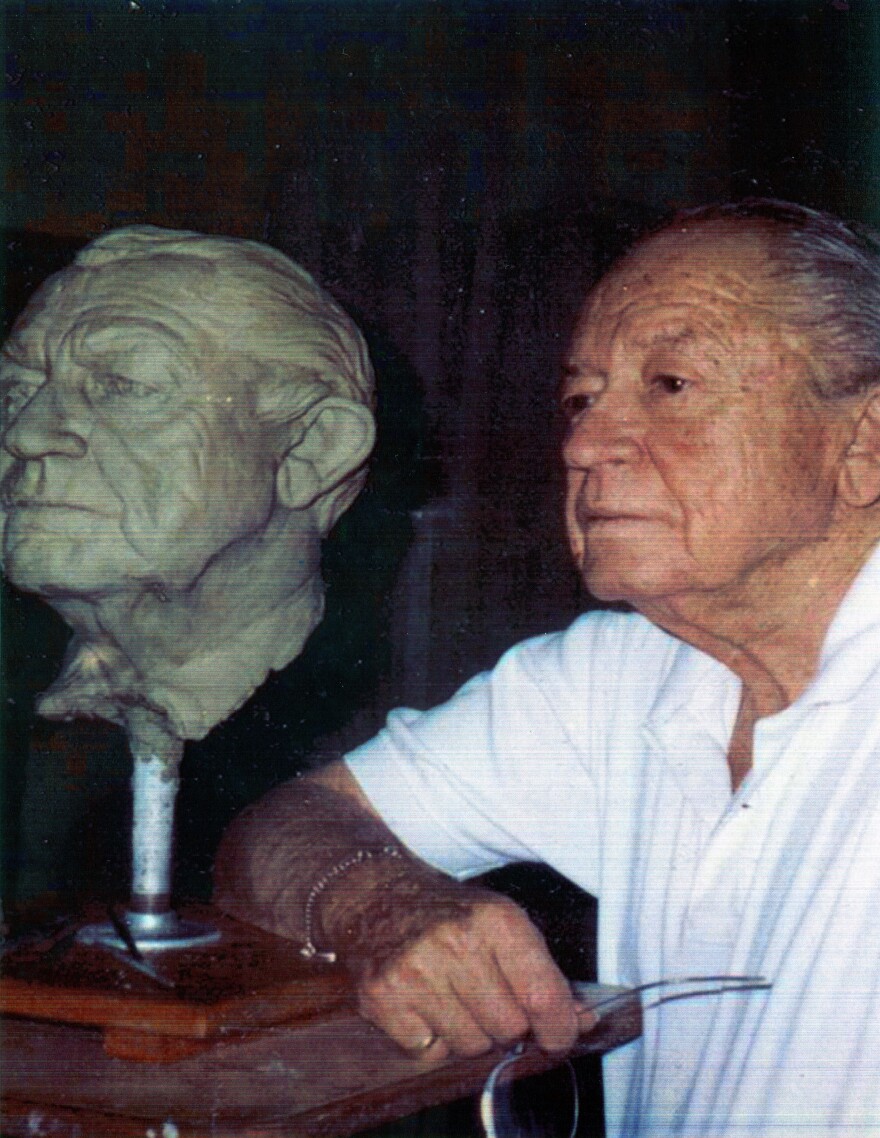The late State Sen. William Anderson Craven had a long history as a public servant. He served in the military, on the San Diego County Board of Supervisors and 20 years in the state senate.
But his biggest accomplishment was bringing North County its own university: California State University San Marcos (CSUSM).
In April 1993, Craven Hall was named after the senator due to his role in establishing the university.

But that dedication was met with controversy over comments he made two months before.
“There will be a lot of people who will disagree with what I am going to say, and it is just a thought I had. It is not a philosophy," Craven said during a hearing on border issues. "It seems rather strange that we go out of our way to take care of the rights of these individuals, who are perhaps, on the lower scale of our humanity for one reason or another."
That comment got him accused of racism toward undocumented immigrants.
But it was not until this year that university officials voted to have the late senator's name and bust removed from Craven Hall.
The vote came after a task force spent 18 months in research, meetings and discussion of the change.
The Craven Task Force, under the direction of CSUSM's President Ellen Neufeldt, was charged with the following four objectives:
Discover and objectively document the historical record of William A. Craven’s statements and actions as they relate to his past leadership roles and affiliations with CSUSM, our region and our state.
Analyze and build a common understanding of the contemporary issues surrounding the William A. Craven name and his legacies.
Develop opportunities for open and informed discussion with the internal and external campus community regarding the issue under consideration as it relates to our institutional mission and values.
- Building on the results of an educational and information-gathering process, articulate the potential impacts of retaining, replacing or contextualizing the name and representation of William A. Craven at CSUSM with supporting evidence and arguments.
The task force's final report noted that its members "represented a broad range of viewpoints and perspectives and did not reflect a unified view on understanding of the historical record or characterization of the senator’s words and actions."
“It was a lot of work. I think people struggled," said Patricia Prado-Olmos, one of the co-chairs of the task force. "They struggled with ways in which to reconcile what they were learning, how they were hearing very different views, and to think about ... what was the right thing, or the best thing, to help the campus and the students and faculty and staff here, move forward.”
Elizabeth Matthews, the other co-chair, said the task force heard from the senator's family and friends.
"This is an emotional and difficult issue. There's pain there for sure," Matthews said. "We also heard from students and community members who were in pain. We have colleagues on this campus who have been in pain for 30 years over this. There was a lot of emotional work that went into it.”
Sen. Craven's daughter, Tricia Craven Worley, said the decision to remove his name has been emotional for his family and supporters. She said her father dedicated his life to the university.
"He did it exactly for the people who are populating the university now. Over 50% are Hispanic. That's exactly what he had in mind. If that's what he had in mind, why are they removing his name? This is so wrong," she said.

Craven died in 1999. He defended his comments, saying they were taken out of context.
"My father never apologized because he never said anything wrong," Craven Worley said. "What he said was a conjecture, not a statement. Because 'perhaps' means, 'perhaps, well maybe, well what am I thinking, perhaps they are on a lower level of humanity,' in a hearing on economics."
Craven’s name isn't the first to be removed from a school building or city monument. But Craven Worley said if the past is going to be brought up today, then to be fair, it should be brought up for every statue commemorated on campus.
Prado-Olmos said the process and decision upholds the university's mission and values.
"Is it fair to judge someone in the past by the values of today?" she said. "I think in my mind, that's kind of a false dichotomy because the values of today were there in the past. They just were not acknowledged or held up. They weren't part of the structures of politics and power at the time. And everything can coexist."
Sen. Craven's name and bust has yet to be removed. The university plans to discuss how to best commemorate the senator's contribution in a different way.
But Craven's daughter said, if his name isn’t good enough to be on the building, she doesn’t want it on campus at all.
"I want to retrieve his papers and memorabilia from the library," Craven Worley said. "I will demand that his scholarship that we created be stopped and that the principal be returned to the family to distribute in an appropriate way because, oh my gosh, would you want to have a scholarship that's from a white supremacist? ... If that's the case, we don't want anything to do with it."
-
President Joe Biden is proposing new rules that would limit access to asylum, similar to Trump-era policies.
-
Law enforcement officials arrested 48 people in connection with a month-long operation targeting suspected sex traffickers in National City and San Diego. We hear from a local expert on how sex trafficking impacts minors.







